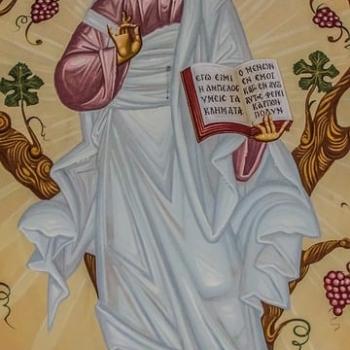
Can philosophy improve religion and help us to understand God, or should philosophy and religion be kept separate, never the twain shall meet? In this paper, I will discuss the complicated and, I think, occasionally beneficial relationship between philosophy and religion, specifically Catholicism.
Before commencing, providing a brief definition and explanation of religion and philosophy may be helpful.
What Is Religion?
Religion signifies those ways of viewing the world that refer to a notion of a transcendent reality that manifests itself in human experience. Religion can be further understood as the composite of all the virtues that arise from a human being’s relationship to God as the author of one’s existence. As such, religion corresponds to the practice of piety toward God as the Creator of the universe. (See New Advent Catholic Encyclopedia).
What Is Philosophy?
Etymologically, philosophy is the love of wisdom. It is an effort to understand ourselves and the world we inhabit. Such a definition hints at the breadth of the philosophical endeavor. Owing to the extensive range of the subject matter, philosophy is generally divided into four disciplines: theoretical, epistemology, practical, and the history of philosophy.
Theoretical philosophy is concerned with metaphysics, ontology, and cosmology. Since metaphysics concerns the nature of existence (ontology) and the nature, origin, and final disposition of the universe (cosmology), it also asks whether there is a God. In this sense, it crosses into the realm of theology and religion.
Epistemology seeks to examine how we learn and understand our world. It is the study of the nature and extent of knowledge. Can epistemology aid in understanding divine revelation?
Practical philosophy focuses on ethics, social and political philosophy, and aesthetics. It also includes logic, which concerns itself with human reasoning. All of these aspects of practical philosophy are also of concern to Catholicism.
Finally, the history of philosophy studies how the most eminent thinkers in history have answered the great questions.
While philosophy can be thought of as being very abstract and esoteric, it often seeks to address many practical questions that arise. Philosophical inquiry frequently follows a five-step process. What follows is a very brief overview of the Socratic method.
First, a question or problem arises. Second, various examples or samples involving the question are observed. Third, based on the samples observed, an inductive conclusion is drawn. Inductive conclusions are only probable. The fourth step is the most abstract. Here, one comprehends the nature of the problem. This leads to a deductive certainty because one has come to understand the nature of the subject. Finally, the deductive conclusion is applied to particular questions.
For example, we wonder if we are mortal. We observe (from learning or from direct experience) that people die. We infer that it is likely that humans are mortal. At some point, we have the insight to realize that it is in the nature of human beings to die. One then concludes that if it is true that one is human, and humans are mortal by nature, the one, too, is mortal.
How Can Philosophy Aid The Religious Quest
I want to examine several areas where philosophy can benefit the understanding of God and Catholicism.
Philosophy’s emphasis on clarifying terms and concepts can provide a framework for understanding God. It can aid in examining the logical claims of theism, pantheism, atheism, and panentheism. Philosophy can analyze the logical consistency of attributes ascribed to God. For example, is it possible for one being to be omnipotent, omniscient, and omnibenevolent?
Owing to God’s transcendent nature, religious language frequently uses metaphors and symbolism. Philosophy can be helpful in illuminating religious language and doctrine. For example, philosophy can provide insight into the Eucharist by clarifying the difference between form and matter as it relates to transubstantion.
Philosophy can also provide a framework for analyzing and evaluating religious claims and teachings, such as the existence of God, the nature of good and evil, the problem of suffering, and the concept of salvation.
Furthermore, philosophical arguments, such as the ontological, cosmological, and teleological arguments, provide a rational basis for belief in God.
Theodicy, or the problem of evil, can also be viewed philosophically. Where questions of why an omnipotent and benevolent God can allow evil to occur, philosophy can show that evil is a privation of good as well as illuminate the relationship between free will and evil.
The philosophy of religion can provide insight into the nature of the mystical and near-death experiences and explore their implications for religious belief.
Religious claims can be evaluated logically, thereby distinguishing between reasoned arguments and emotional appeals. Similarly, philosophy can help to reconcile religious beliefs with scientific knowledge, addressing potential conflicts between faith and reason. Specifically, philosophy can show the complementary nature of reason and faith.
Finally, philosophy can evaluate and apply ethical claims to religious actions and doctrines.
Limits Of Philosophy
Within the context of the relationship between religion – specifically, Catholicism – and philosophy, there are clear lines of demarcation.
Philosophy is an attempt to rationally address various questions, such as the existence of God(s). However, since finite and mortal humans cannot truly comprehend an infinite and eternal God, rationality is not sufficient. Moreover, intellectual knowledge of God (however limited) cannot affect our salvation. Salvation requires faith in God, and faith is on the far side of reason. Said differently, if philosophy is rationality, then faith is a step beyond; it is superrationality.
Conclusion
The renowned atheist and scientist Daniel Dennett once remarked that there is no such thing as philosophy. The statement was remarkable if for no other reason than it was blatantly self-contradictory. To state that philosophy does not exist is itself a philosophical statement. The question and purpose of this paper are to suggest that philosophy may be of great utility to Catholics seeking to understand their faith and the nature of the transcendent.













